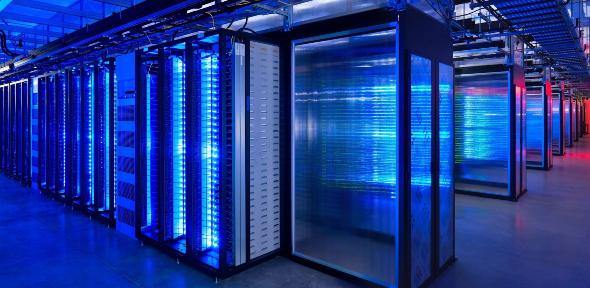
Energy consumption for digital processes and infrastructure is increasing due to increased grid electrification, self-driving cars, robotics, IoT devices, smart medical technologies, advanced cyber security, and digital entertainment. As well as high energy usage by digital processes and data centres globally, many digital applications use energy-intensive AI processes where the energy cost of training state-of-the-art AI models is increasing exponentially.
Research is underway at Cambridge to develop energy-efficient digital processes and systems to ensure efficient and reliable digital processes towards 2050.
Digital systems research covers: urban-scale energy simulation of built environments, computational modelling, optimisation, digital twins, digital monitoring, software system architectures, computational agents and low-energy computing.
Some key centres and initiatives include:
- AI@Cam is Cambridge University’s flagship mission on artificial intelligence
- Cambridge Centre for Carbon Reduction in Chemical Technology (C4T)
- CARES
- Energy Efficient Cities initiative
- Cambridge Centre for Smart Infrastructure and Construction
- The Martin Centre: Sustainable buildings and Cities
- Turing Institute
Spin-outs:
Cambridge GaN Devices energy-efficient GaN-based power devices
Paragraf Graphene electronic devices
nu Quantum high-performance quantum networks
Researchers working in this area:
| Dr Ozgur Akan |
University Associate Professor |
| Dr Jethro Akroyd |
Senior Research Associate |
| Prof Abir Al-Tabbaa |
Professor of Civil and Environmental Engineering Member of the Energy IRC Steering Committee |
| Dr Ronita Bardhan | Associate Professor of Sustainable Built Environment |
| Prof Alastair Beresford |
Professor of Computer Security |
| Prof Alan Blackwell |
Professor of Interdisciplinary Design |
| Prof Ruchi Choudhary |
Professor of Architectural Engineering |
| Dr Chiara Ciccarelli | Harding University Lecturer |
| Prof Jon Crowcroft | Marconi Professor of Communication Systems |
| Prof Gabor Csanyi |
Professor of Molecular Modelling |
| Dr Ramit Debnath | Assistant Professor Computational Social Science & Design |
| Prof Andrew Flewitt |
Professor of Electronic Engineering |
| Prof Sir Andy Hopper |
Professor of Computer Technology |
| Dr Jasmin Jahic | Research Associate in the Computer Architecture Group |
| Prof Ying Jin | Professor of Architecture and Urbanism |
| Prof Srinivasan Keshav | Professor of Computer Science |
| Prof Markus Kraft | Professor of Chemical Engineering |
| Prof Nic Lane | Professor of Machine Learning Systems |
| Prof Ian Leslie | Professor of Computer Science |
| Prof Anil Madhavapeddy |
Professor of Planetary Computing |
| Prof Andrew Moore |
Professor of Networked Systems |
| Professor Xavier Moya | Professor of Materials Physics |
| Prof Nikos Nikiforakis | Professor of Computational Multiphysics |
| Prof Richard Penty | Professor of Photonics |
| Prof Amanda Prorok | Professor of Collective Intelligence and Robotics |
| Prof Andrew Rice | Professor of Computer Science |
| Prof Phillip Stanley-Marbell | Professor of Physical Computation |
| Dr Eiko Yoneki | Affiliated Lecturer |
| Dr Li Wan | Associate Professor in Urban Planning and Development |

